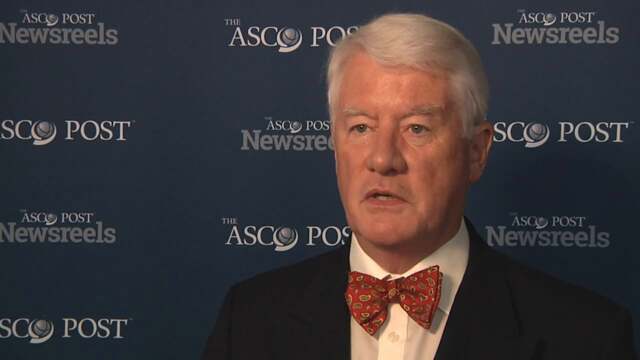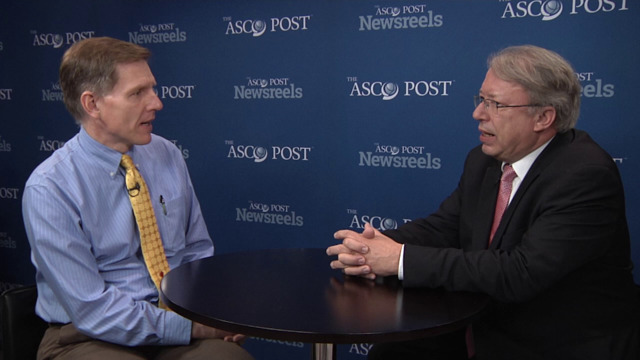Lawrence N. Shulman, MD, and Clifford A. Hudis, MD, on Cancer Care in Resource-Challenged Areas
2015 ASCO Annual Meeting
Lawrence N. Shulman, MD, of Dana-Farber Cancer Institute, and Clifford A. Hudis, MD, of Memorial Sloan Kettering Cancer Center, discuss the delivery of cancer care in resource-constrained settings such as Rwanda and Haiti, and plans to conduct research in basic tumor biology of patients in these areas.
Anil D’Cruz, MD
Anil D’Cruz, MD, of Tata Memorial Hospital, discusses results from his study that seem to resolve a 50-year-long debate on performing elective neck dissection at the time of primary surgery––a potentially practice-changing finding (Abstract LBA3).
Jame Abraham, MD
Jame Abraham, MD, of the Cleveland Clinic discusses analyses of two trials for locally advanced, inflammatory, or early HER2-positive breast cancer using docetaxel, trastuzumab, pertuzumab, and neratinib (Abstracts 505 and 508).
John Smyth, MD
John Smyth, MD, of the University of Edinburgh, discusses oncology from an international point of view.
Claus Garbe, MD, and Anthony J. Olszanski, RPh, MD
Claus Garbe, MD, of the University of Tuebingen, and Anthony J. Olszanski, RPh, MD, of Fox Chase Cancer Center, discuss the survival of sentinel lymph node-positive melanoma patients with and without complete lymph node dissection (Abstract LBA9002).
Nicholas C. Turner, MD, PhD
Nicholas C. Turner, MD, PhD, of the Royal Marsden Hospital NHS Trust, discusses fulvestrant and palbociclib as a treatment option in pre- and postmenopausal women with hormone receptor–positive, HER2-negative metastatic breast cancer that progressed on prior endocrine therapy (Abstract LBA502).





